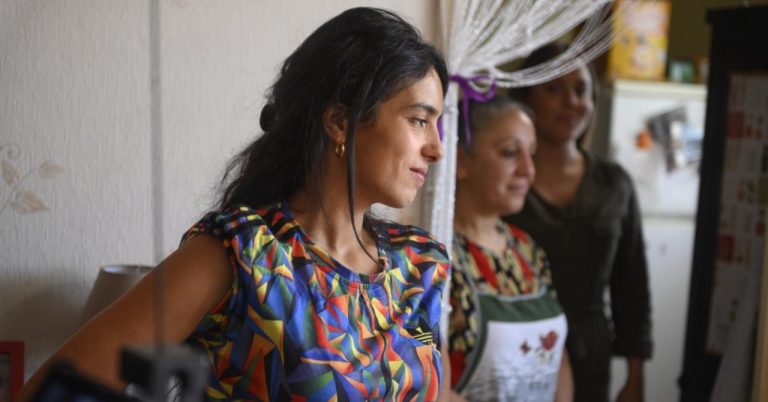Fatima, the very human diary of a cleaning lady (review)
The César for best film 2016 returns tonight on C8.
Fatimaof Philippe Faucon with Soria ZeroualZita Hanrot and Kenza Noah Aiche, received the César for best film in 2016. It is rescheduled tonight on television. This drama initially won over audiences during the Directors’ Fortnight in 2015. Here is our review.
Fatima goes out of her way to ensure that her two daughters succeed. While the eldest Nesrine is working hard for the medical exam, the youngest Souad, a schoolgirl in revolt, refuses to make any effort. Housekeeper in staggered hours, Fatima raises them alone in the Lyon suburbs, against winds and tides. The dialogue is all the more complicated between them, as this courageous mother born in Algeria speaks French badly. When a fall forces her to ask for a work stoppage, she begins to write a diary for her daughters, in Arabic.
César 2016: Who are you Zita Hanrot?
Philippe Faucon (Disintegration, 2012) follows the journey of its heroine with rare sensitivity. Without ever falling into misery (despite the pettiness of everyday life, the characters remain dignified and move forward) or conversely, into angelism (intolerance emanates as much from the white dominant class as from the dominated). Far from being condescendingly picturesque, his view of the French Maghrebi community is rich in nuances. Fatima, for example, may turn out to be endearing, honest, courageous and full of gentleness, but she guards against a certain conservatism (the same as that of certain bigoted neighbors given to village gossip) when it comes to the love life of his daughters. And the latter do not hesitate to reproach him for it.
Small human miracles
Through their mutual misunderstandings and the film’s bilingualism, the cultural divide between first and second generation immigrants is expressed: how can you help your children, when you don’t master their language? Souad, who is ashamed of his mother’s profession (“a rag”), struggles to find a model of success to identify with. As for Nesrine, she has long passed beyond Fatima’s field of knowledge. For an untrained ear, French-speaking or not, his medical courses sound like gibberish, mantras within which sometimes lies a hidden meaning: “The heart is the organ that forms first”. Of heart, it is certain, the film of Faucon does not miss.
Benevolence radiates every shot of his triple portrait of a woman. It is diffused between the characters like an antidote to fatigue, “by communicating vessels” (to use the expression of a doctor, surprised to see the mother as tried as her daughter by the stress of the exams), by making each difficult situation the occasion for an improvement, a generous gesture, or just an attentive look granted to the other (the one, magnificent in tenderness, of Nesrine in front of her lover, to which the one, saddened but completely as beautiful, of a flirty spurned by the indomitable Souad). So many small human miracles that happen here with naturalness and simplicity, feed organically, in the service of this subtle and poignant film.
Eric Vernay







